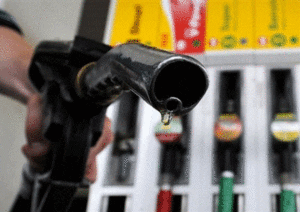The price of fuel is confounding all predictions dropping to its lowest price since April this year, when it stood at R14.39.
The price of fuel in December is now R12.47 which in real terms is a reduction of approximately 13% This drop is largely attributed to the reduction in the global crude oil price, which has dropped from $115 per barrel in April to around $73 per barrel – this being the lowest cost for four years.The South African Reserve Bank has adjusted South Africa’s growth forecast to 1.4% from 2.7% and the current economic condition is bleak at best. However the decreases in the fuel price have provided a much need relief to South African consumers and corporates. Eqstra Fleet Management MD, Murray Price, however warns fleet controllers against too much optimism. “The current downward trend in the petrol price is unlikely to continue, even if the cost of Brent crude is reduced further,” he states in the company’s latest White Paper on Fuel. With the announcement by OPEC on Friday that they will maintain current oil production levels for the foreseeable future, it is assumed that this is a bid to cripple competitors in an attempt to control the market.
The production of crude oil is only feasible if a minimum price of $75 – $85 per barrel is achieved in most exporting countries. Dropping oil prices will therefore potentially cripple competitive producers, particularly those in Russia, leading to a decline in production.
Equally, the current breakeven cost for a barrel of shale oil produced in the USA is also $70 – $75. Thus, if Brent continues to drop, domestic producers in the US will find it more difficult to remain competitive and production could begin to decline in 2015. This inevitably leads to speculation that the US might alter policies to protect their domestic crude oil production.
Further to the threat of declining production (and thus rising prices in the medium term), one of the key elements of pricing remains the strength of the Rand with forecasts showing a continuing weakening against the US Dollar. The rand has weakened on average 10% year on year against the US dollar over the past five years and this is expected to continue in the future. “Based on the historical data, and the external predictions on both the Brent Crude and Rand pricing we are revising our April 2013 predictions and estimating that the average increase for the full calendar year of 2015 vs. 2014 pricing will be between 8-10%,” says Price. “Despite the current trend in the fuel price it remains statistically likely that 2015 pricing will again increase in the range of between 10% and 15%.” To place this in context, the average fleet vehicle consumes approximately 5,000 litres per annum. With the December 2014 fuel price of R 12.47, this would equate to an annual cost of R62 650 per vehicle per annum. A 10% increase would result in an annual increase per vehicle of +/- R6 265 – whereas a 15% increase would result in an annual fuel increase per vehicle of +/- R9 398. “Fuel now contributes between 42% and 48% of overall corporate fleet expenditure. Given the information available to us at this time, we would strongly recommend that fleet operators budget for a 10% – 12% increase in the price of fuel for 2015,” concluded Price. “In addition, fleet controllers should continue to review vehicle selection and introduce more fuel efficient models, actively manage driver behaviour and curb private mileage by employees”.






